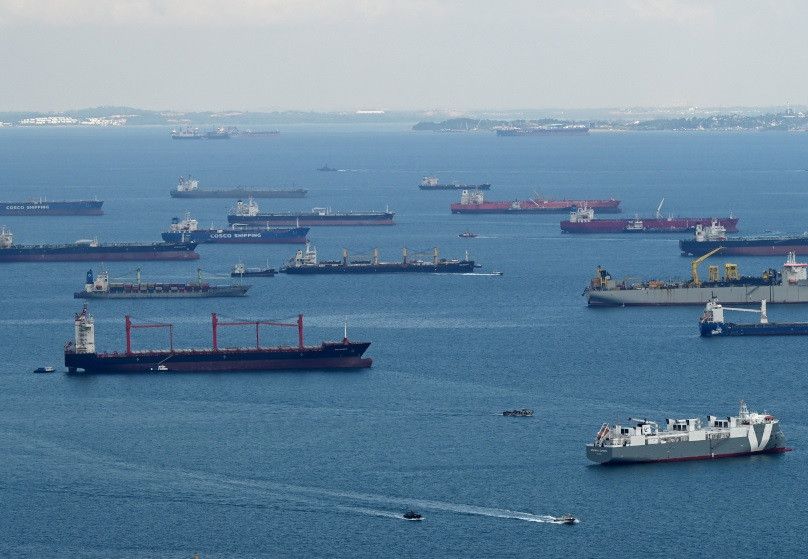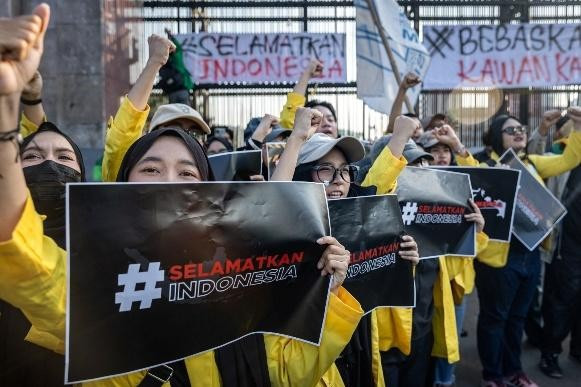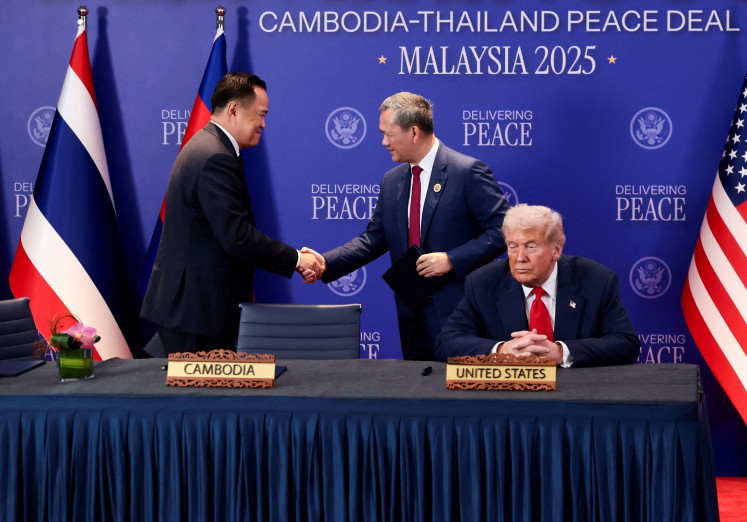Popular Reads
Top Results
Can't find what you're looking for?
View all search resultsPopular Reads
Top Results
Can't find what you're looking for?
View all search resultsNavigating maritime trade compliance amid geopolitical tensions
International cooperation is essential for sustaining the security and integrity of global shipping routes, particularly in regions such as the Malacca Strait.
Change text size
Gift Premium Articles
to Anyone
I
ndonesia stands at a critical juncture as it prepares for the 2024 presidential election. Regardless of the new leader, he will inherit complex challenges, with maritime trade compliance taking center stage. Strong leadership and effective policy-making are paramount in the current turbulent geopolitical landscape, characterized by events like the Ukraine-Russia, Israel-Hamas conflicts, and ensuing sanctions.
The new government will need a clear vision and a firm hand to navigate these turbulent waters. Recent events in early 2023, such as the detention of a bulk carrier designated for violating North Korean sanctions in Indonesian waters, have demonstrated the need for strict enforcement of international laws.
This particular incident highlights the difficulties Indonesia confronts as an archipelagic nation. With tens of thousands of islands and expansive maritime borders, monitoring and enforcing compliance with international sanctions and regulations is a formidable undertaking. However, the government must undertake this mission to avoid penalties and preserve the country's standing in the international community.
In addition, the government must address the problem of maritime piracy in the Malacca Strait (The Jakarta Post, June 3, 2023). As one of the busiest commercial sea channels in the world, any disturbances in the strait could attract international attention and increase the naval presence of significant powers such as China and the United States. This would exacerbate the geopolitical situation and threaten regional security.
While the issue of ship-to-ship transfers in the vicinity of Spain may not fall directly under the jurisdiction of the Indonesian government, it serves as a stark reminder of the potential risks and repercussions of noncompliance with international regulations. These transfers, frequently made to evade sanctions, pose a substantial threat to the environment and the integrity of international trade. This can serve as a lesson for the Indonesian government to ensure that Indonesian vessels are not involved in such activities.
The new government will also have to consider the broader economic implications of these challenges. As a nation heavily reliant on international trade, disruptions to shipping routes and the availability of products could have severe economic repercussions. The government will have to devise strategies to mitigate these threats and guarantee the Indonesian economy's continued expansion and prosperity.
The geopolitical tensions arising from the Ukraine conflict and the Israel-Hamas war can disrupt shipping routes, product availability and prices. These conflicts may lead to higher insurance premiums and shipping costs for countries exporting to regions affected by the turmoil.



















